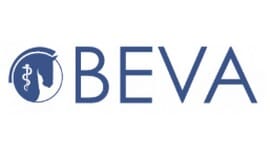
One of my first pleasures as BEVA president was to host the international presidents’ meeting (via Zoom of course). BEVA has hosted this event for several years as an opportunity for communication and collaboration between equine vets worldwide. I was humbled and excited to find almost 30 countries pop up on the screen in front of me. Other than the obvious imposter syndrome (am I really chairing this?!) it was exhilarating to be in such renowned company. It is worth mentioning the gratitude and respect held towards BEVA for taking the time to host this event, and the genuine warmth that exists between equine vets worldwide. It was also exciting to be involved in a global veterinary meeting where, due to a pandemic, we were functioning effectively from our homes and offices. Presidents who could never justify a face-to-face meeting in the UK could engage freely, and express their concerns in a carbon-neutral, sustainable way – another small contribution from the equine vet world towards a common goal.
I was surprised to find that the issues concerning BEVA were replicated so closely worldwide. There will always be nuance and exception, but the general trend was clear
After the initial welcome messages, each country discussed their main areas of concern thus building a global picture of “equine veterinary health”. Each differed in their resource, some having thousands of members and an admin team to support their aims, others with just circa 30 members in total. However, the camaraderie was obvious; after all, we all share one common goal – “to improve the welfare of the world’s equids”. As the session progressed, I was surprised to find that the issues concerning BEVA were replicated so closely worldwide. There will always be nuance and exception, but the general trend was clear.
Issues of concern among international equine presidents
Veterinary retention
Without any doubt this was the major concern for all but two of the countries present. Most countries found that the desire to train and become an equine vet was still present, albeit in lower numbers; however, their retention was the real problem. Both the US and Australia have surveyed and investigated their membership widely regarding this issue and have found a decrease in entry into equine work from within the graduate population – in some cases by as much as 70 to 80 percent. BEVA is most grateful that these countries have agreed to share their findings with us as soon as the work is finalised, thus accelerating and broadening our understanding of this issue – collaboration at its best. Moving forward this creates real concerns regarding the future supply of equine vets. Thankfully, this is offset by the increasing numbers of students entering the system; however, qualification takes time and we are yet to find out to what extent the deficit will be filled.
More worrying is the wastage from the equine veterinary sector during years two to seven post-qualification. A significant number of young equine vets opt to take a sideways step within the profession or, worse for us, a leap out into other employment streams. The vets who chose to continue working as clinical vets largely moved into small animal practice quoting reasons such as work–life balance, improved rotas and better part-time working options. Those who left the profession mentioned reasons such as seeking better remuneration, as well as improved work–life balance. Burnout was also a common finding among movers and leavers.
Those who left the profession mentioned reasons such as seeking better remuneration, as well as improved work–life balance. Burnout was also a common finding among movers and leavers
All countries agreed the acute need to reverse this trend. At the very least, we are letting our colleagues down by failing to notice and/or act on the signs of discontent and stress. Thankfully, in recent years several excellent initiatives have been set up in order to identify and support these individuals. Again, collaboration is key, and it is refreshing and essential to see all parties within our sector pulling together to solve this problem. Mental health is now centre stage where it belongs. Struggling is no longer failure, it’s just an imbalance that can be changed with the correct support mechanisms. Please contact me or the BEVA office if you would like any further information.
Key areas for improvement were identified:
- Collaboration within and between equine practices – a team approach to client care rather than an individual approach. While this option is totally reliant upon excellent communication, if done well it could reduce the stress on the individual
- Appropriate charging for services – essential for the success of any business, but also highly significant for individual sense of worth and fulfilment
- Education of clients – reduced tolerance for inappropriate client behaviour. Every interaction is a two-way process, and as a profession we must stand together to identify and refuse to accept negative behaviour from our client base. One of the recent surveys identified the inability of a senior member of staff to challenge, and if necessary remove, clients who demonstrated aggressive or unreasonable behaviour towards a junior member of staff as the primary consideration of dissatisfaction and a lack of feeling of being appreciated and valued by that individual
Social licence for equestrianism
During our discussions it became clear that society is changing and the old practices that exist because they always have done are being challenged. This is only right as it encourages consideration and improvements to be made where required. In our industry several countries are now experiencing real concerns regarding the use of horses for pleasure. Societal groups are questioning whether the equid should be allowed to be more than a traditional pet. Is it appropriate to use a horse for work?
Our profession is hugely valued, and as such its central voice has a role to play in reducing the emotion and empowering the evidence in these discussions moving forward
Clearly this is an emotive issue with strongly opposing views on each side. While it may not be the role of the veterinary surgeon to manipulate the discussion, I feel we are in an excellent position to input an unbiased evidence-based opinion. Our profession is hugely valued, and as such its central voice has a role to play in reducing the emotion and empowering the evidence in these discussions moving forward. Our oath gives our position statement strength and is respected by the public and the policy makers.
Medicine availability
Following recent events, several European countries expressed concern regarding drug availability. New border controls and new documentation have stilted trade and pockets of vulnerability have been identified. FEEVA has been central in its role in progressing communication and trade.
To conclude
Hopefully this gives a brief insight into a few of the items discussed at our recent meeting. For all the concerns, the desire to identify the problems and find solutions was palpable. Vets are clever people, and when you put a world of vets together, surely we can make things work?











